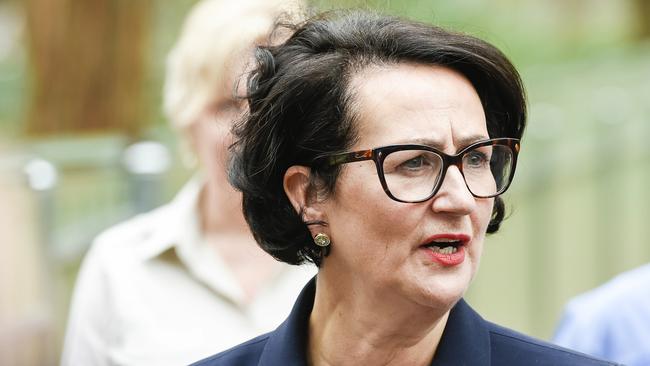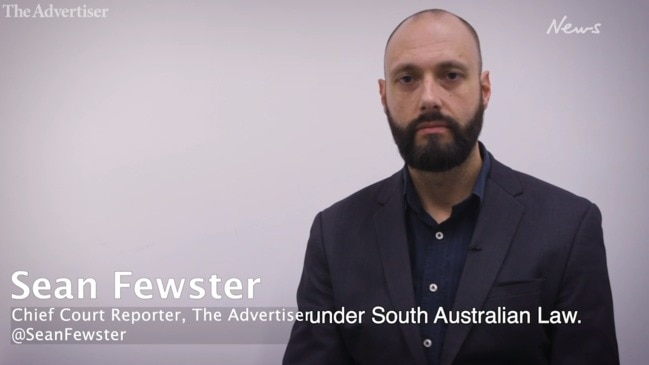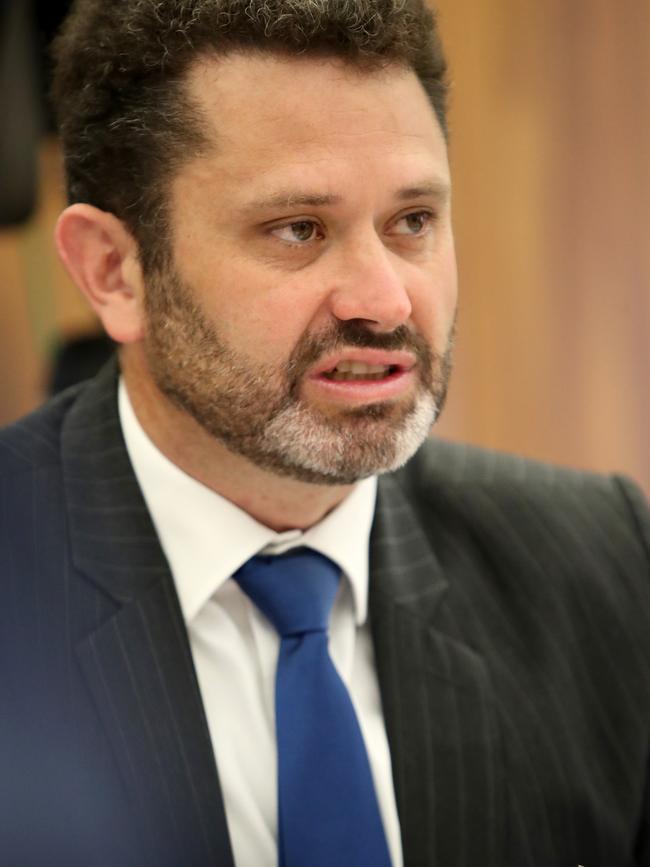Archaic SA law giving automatic anonymity to alleged sex offenders overturned at last, following 18-year Advertiser battle
Decades of automatic anonymity for alleged paedophiles, rapists and sex offenders – and the 18-year battle to name and shame them – have ended as new SA laws finally come into effect.

Crime in Focus
Don't miss out on the headlines from Crime in Focus. Followed categories will be added to My News.
- “Fake cop rapist” still a state secret, despite landmark law change
- Support journalism that fights for your rights with an Advertiser subscription
Laws overturning decades of automatic anonymity for alleged sex offenders will finally start operating in SA from Thursday, successfully ending an 18-year Advertiser campaign for the public’s right to know.
From Thursday, persons charged with sex crimes can be named from the moment of their first court appearance – so long as it does not in any way identify their alleged victim.
Although the archaic law was rewritten in March, its operation was postponed to allow SA Police and the Courts Administration Authority time to alter their internal processes.
That delay saw at least two offenders – including an accused rapist who allegedly targeted women in COVID-19 isolation – enjoy identity protections to which they were unentitled.
On Wednesday, Attorney-General Vickie Chapman said those organisations had been given “appropriate time” to get their affairs in order, and that time was now up.
“As I’ve stated many times before, automatic suppression of sex offenders was an archaic piece of law in SA,” she said.

“I’m proud that this Government has been able to get rid of it – especially after pushing for this change for over 12 years.
“I believe that, in the vast majority of cases, the public has the right to know the identity of someone who has been charged with an offence of this nature.”
THE LONG ROAD TO TRANSPARENCY
May 2011: Judge calls for end to gag orders, Labor Government refuses
February 2013: Landmark first – and only – victory under Labor’s half-measure compromise
April 2018: Campaign calls for end to unjust, isolating, out-of-date law
October 2019: Archaic, draconian laws to end under draft Bill set for Parliament
March 2020: Anonymity laws struck from the state’s books
March 2020: Alleged “fake cop” rapist kept secret, despite historic legal change
April 2020: “Fake cop” to remain a state secret until at least July, court rules
April 2020: Cheerleading coach’s ID remains secret over child sex charge
The change rewrites Section 71A of the Evidence Act, which banned reporting of not only an alleged sex offender’s identity but also all details of their case.
Unlike standard suppression orders, which must be argued in open court, 71A operated automatically – giving sex offenders preferential treatment under the law.
No change has been made to the automatic, permanent ban on identifying alleged victims of a sex crime without their consent.
Alleged sex offenders may still apply to a court for a suppression order, but must now prove naming them would “prejudice the proper administration of justice”.
Child abuse survivor “B”, one of Adelaide’s “masked brothers”, said the correct balance had finally been struck between the rights of defendants, alleged victims and the public.
He said abuse allegations only reached court when authorities had “robust evidence” and “a realistic chance of conviction”.
“You’re not talking about baseless allegations with no substance,” he said.
“Even if later found not guilty in court, the reputational damage caused by allegations of child sexual abuse would be horrendous and lifelong.
“Mud sticks, so it’s a very important balancing act that should be reviewed on a case-by-case basis.
“But alleged child sex offenders should not have an automatic right to have their identity concealed.
“Just like everyone else, they need to demonstrate to the court the specific reasons why they should be granted this invisibility.”


While the former Rann and Weatherill governments opposed any change to the section, the new laws passed with bipartisan support from the Malinauskas Opposition.
On Wednesday, Opposition justice spokesman Kyam Maher welcomed the implementation of the new laws.
“This is an important measure that helps ensure the public’s right to know is not only protected, but also enhanced,” he said.
“The Opposition looks forward to the people of SA not just having a better understanding of the criminal justice system, but being better able to appreciate justice being done.”
“B” agreed.
“Should the community be kept in the dark about the identity of some of the most dangerous and cunning alleged criminals who are living and walking among us?” he said.
“Would you want to know if the bloke living across the street was on trial for child sex crimes?”

